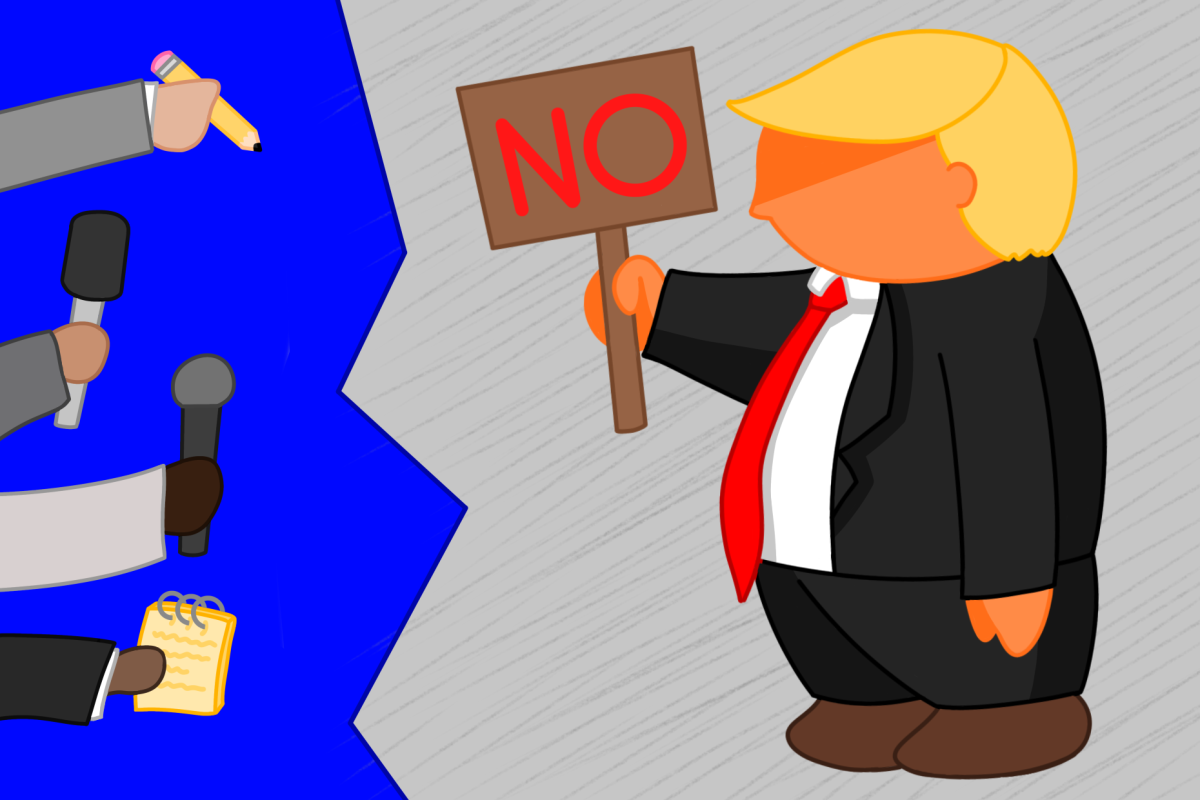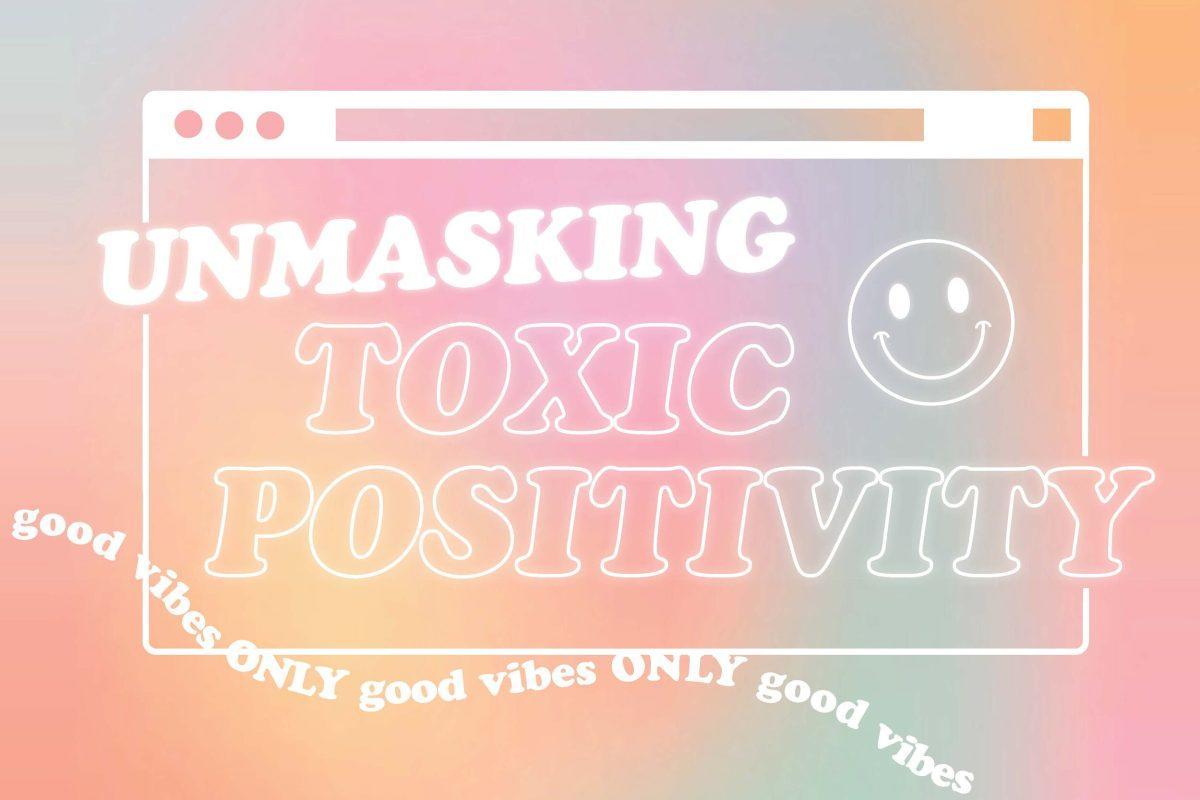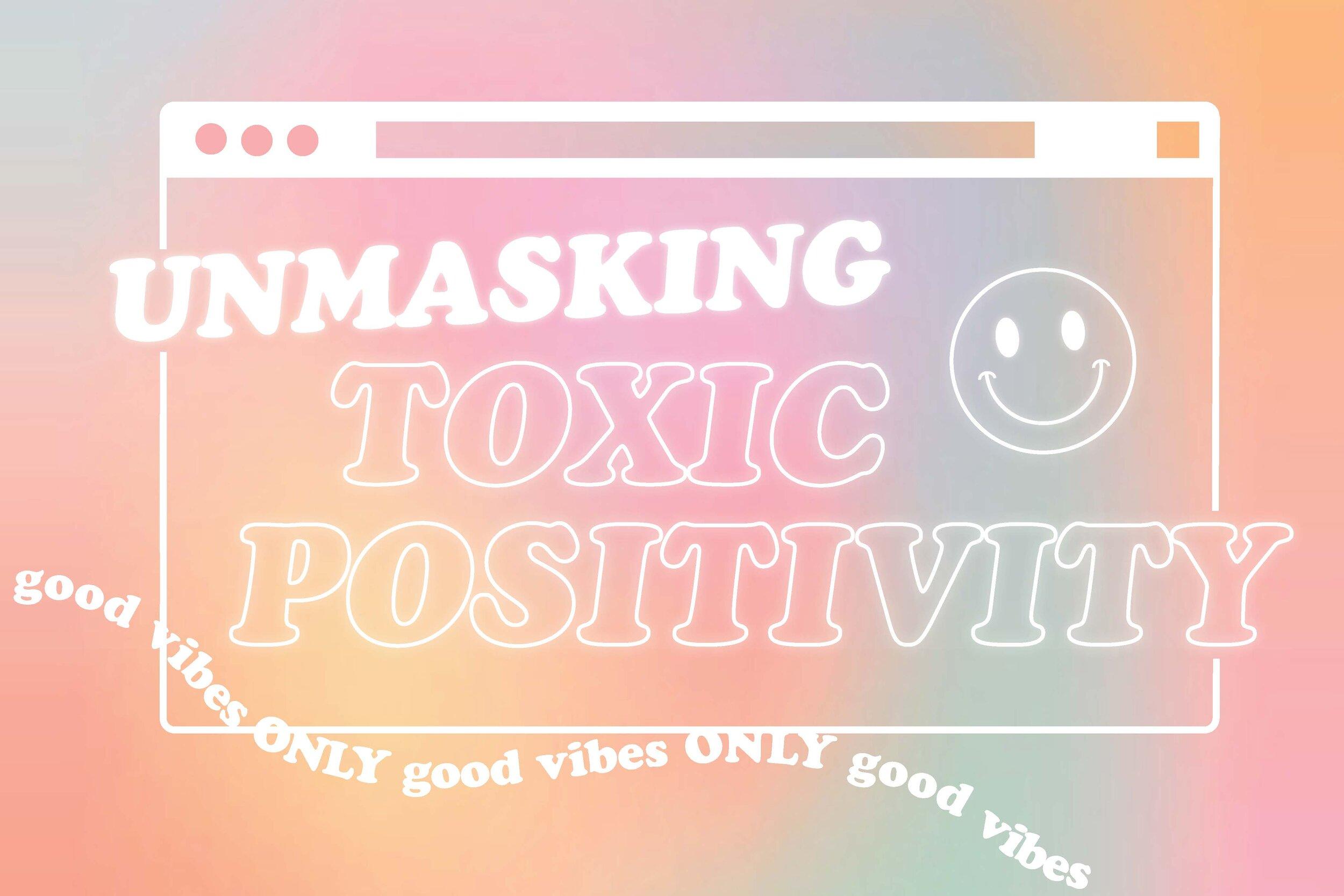Story by Sonali Menon // @sona.spooks // she/her
Graphic by Pranutha Punukula // @pranutha // she/her
I have always been the type to view the glass as half-empty rather than half-full.
I credit this pessimism to having grown up watching reruns of 90s TV shows like “Daria,”, whose “cool kids” were always pessimistic and sarcastic. Since then, my personality has been generally cynical, though I never considered this a real problem until high school.
I entered high school in 2016, the apex of the “good vibes” movement. The phrase adorned bright graphic tees, was immortalized in the names of Spotify playlists, and became the go-to social media caption. It was a time when people brought light into their lives with just two simple words.
The “good vibes” concept appealed to me as a high school freshman trying to navigate a new environment but ultimately wasn’t helpful in the face of the anxiety and depression I had succumbed to in transitioning schools. Sure, it’s essential to try and fight back negative thoughts for the sake of your well-being, but when others try to push you into denying all negativity, “good vibes” can become harmful.
There is power in positive thinking: however, I think we have taken the “good vibes only” approach to life a little too far.
The COVID-19 pandemic defined this past year by ushering in lockdowns, job losses and severing contact with friends and family, leading individuals to develop severe mental health issues. Many have experienced a new onset – or a heightening – of loneliness, anxiety, and depression. Articles encouraging people to “think positive“ don’t alleviate the situation’s effects because being productive and finding the bright side might just not be possible for someone.
The situation is worsened further for students by online learning, which can be challenging to manage. Maintaining grades, becoming involved in extracurriculars, and escaping isolation through digital means adds to this pressure. The last thing a student going through a hard time needs to hear is “be more positive!” which can sound like a dismissal of everything they may be experiencing.
The denial of negative emotions and a constant emphasis on positivity is what some experts call “toxic positivity.” The phrase might seem like an example of juxtaposition used by an English teacher, but it is a psychological mindset with harmful repercussions. Toxic positivity denies, minimizes, or invalidates a negative situation by overgeneralizing its positives. Sometimes, this positivity can be unrealistic and cause more issues in the long run.
Toxic positivity can be present in one person as well as inflicted on others. Actions such as encouraging friends to smile through stress, sending funny memes or cute animal videos to distract a loved one from a breakup, or telling someone to “focus on the bright side, you’ll get over it soon” dismisses their problems instead of facilitating growth.
Like anything else, when done in excess, positivity can become a repressive issue. It’s natural to feel bored, sad, angry, or lonely. Attempting to suppress these emotions under a veil of false or forced positivity can cause people to enter a state of denial. There are times in which we need to take a step back, breathe and admit that our circumstances are challenging. Instead of trying to mask this truth, we should work towards managing our emotions healthily and learning from negative experiences.
To tell when you or someone you know is expressing toxic positivity, look out for:
-
Hiding one’s true feelings.
A study from the University of Texas at Austin found that people get stronger when they avoid their emotions, but at a price. These same people also manifest their emotional struggles into physical ones such as alcohol, drugs, excessive work, unhealthy relationships with food and other physical issues.
Repressing one’s issues is not a strong solution as they will spill over once the pressure becomes too much to bear. While it may be challenging to open up to others about tough times, venting is necessary.
2. Trying to “move on” by dismissing emotions.
Life can be fast-paced. If you’re a student, you know this all too well. There are classes to attend, assignments to complete, and books to annotate; there’s too much to do and not enough time to just feel.
Dismissing your emotions and forcing yourself to work can create a deficit in your productivity in the long run. It’s vital to prioritize your mental health and address it before addressing other parts of your life.
3. Feeling guilty over feelings.
I will admit, the most annoying thing about me is that I say the words “I’m sorry” at even the slightest provocation. It’s such a bad habit that I find myself apologizing to the inanimate objects I bump into. I am also guilty of apologizing far too often when I admit sadness or show visible emotion.
Why would I express regret for doing something natural? I now realize that it was because I felt that my emotions were a burden to others and I should put on a cheerful facade at all times to fit in. This is far from the truth.
Everyone has bad days. No one is going to feel perfectly happy all the time, and that’s okay. Feeling guilt over your feelings will not make them go away, and realizing this can make dealing with them more manageable.
4. Minimizing others’ experiences.
When we see others hurting, it is instinctual to want to offer help and words of affirmation, but we should be careful when doing so. Dismissing someone’s problems minimizes a person’s issues and makes them feel like their emotions are invalid. Invalidating someone’s feelings can then trigger suppression that builds up over time.
It is reasonable to want to help, but instead of trying to distract from the issue, take the time to listen and engage to find healthy ways of coping.
5. Invalidating others’ experiences.
Saying someone’s feelings are invalid or convincing yourself that your emotions don’t mean anything can be extremely harmful. Understanding and managing your emotions can be tricky, which is why it is crucial to take time to assess them before addressing them. Shaming people for their experiences with negative thoughts can also trigger unhealthy responses to emotions that can cause more issues.
I can attest to the negative impacts a toxically positive mindset can create. I felt an overwhelming sense of loneliness when I first came to live on campus at the University of Texas at Austin this spring. All of my classes were online and I did not know anyone in my residence hall, let alone the city of Austin. I tried to push away negative thoughts by reassuring myself that everything was fine when it wasn’t.
Whenever asked “how are you?” I would fight every urge within me to tell the truth, and ultimately respond with a forced “I’m great! how are you?”
Ignoring my feelings and refusing to discuss my issues sent me into a spiral with my loneliness, and eventually a depressive episode. This darkness only began to lift when I opened up and talked about my feelings with others.
Learning healthy emotional management techniques to come out strong on the other end when faced with challenging scenarios is an essential life skill, especially for students.
While finding the silver lining in situations might be helpful, that search for happiness should not cause you more pain.
To let go of toxic positivity and develop healthier habits, one can find a healthy coping mechanism in introspection. Look at what is upsetting you and work through it with friends, family, or a professional. Try to find outlets through which to channel your emotions and find joy, whether that be exercise, trying out new restaurants, or even just relaxing at home in your pajamas.
Self-love and self-care look different for everyone, but the importance of taking care of your mental health is universal. Honor yourself and your emotions – it’s okay to feel.












































